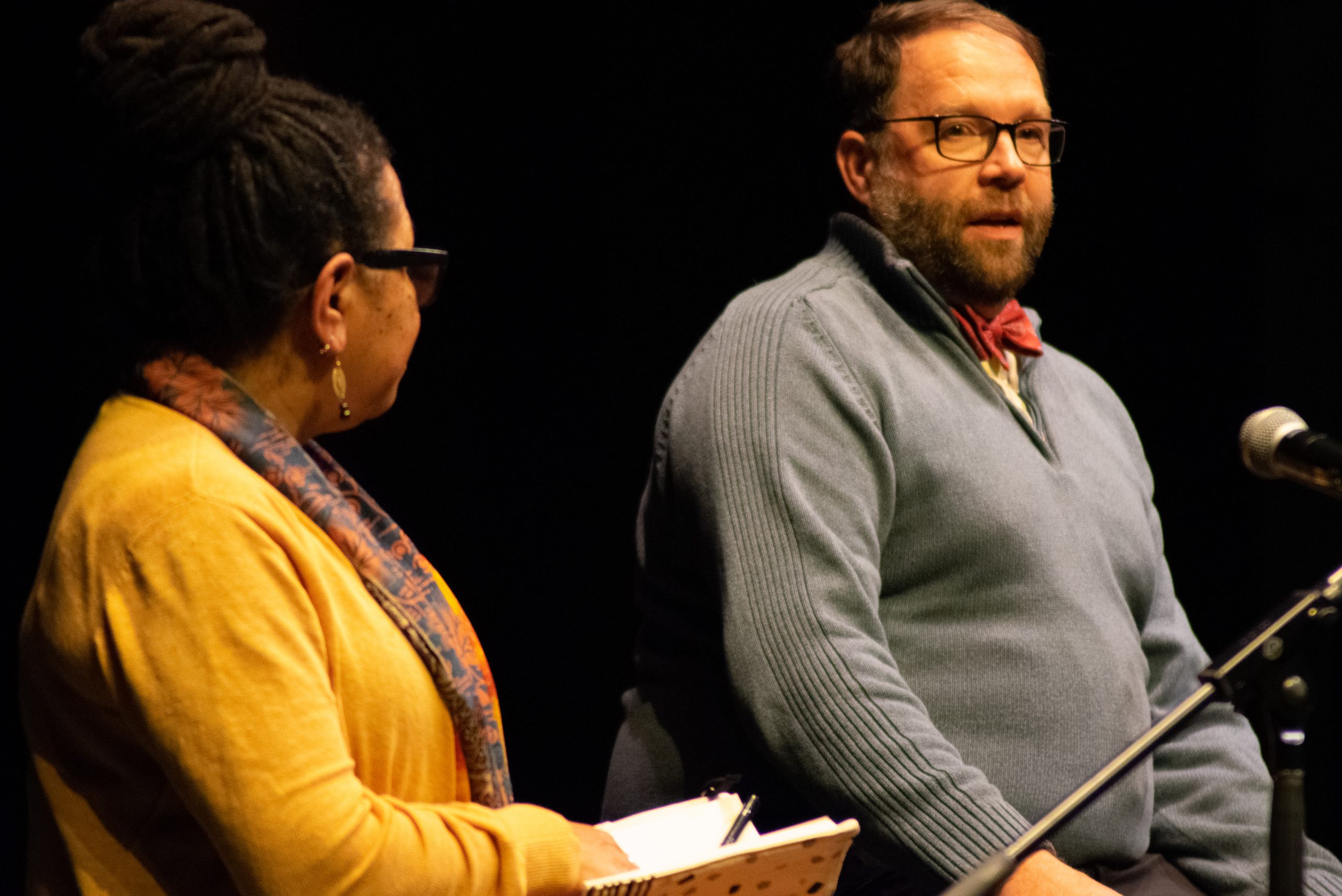Marshall King, a journalist and adjunct professor at Goshen College, shared about his recently published book, “Disarmed: The Radical Life and Legacy of Michael ‘MJ’ Sharp,” in Umble Center on Tuesday evening.
In the book, King tells the life story of Sharp, a Mennonite peacemaker for the U.N. who was kidnapped and killed in the Congo in 2017.Sharp, whose death touched many in Mennonite circles and beyond, grew up in Goshen and attended Eastern Mennonite University in Harrisonburg, VA. He later started his work in peacemaking in Germany.
Sharp worked with soldiers who wanted to be conscientious objectors, and he eventually landed in the Democratic Republic of Congo working as an expert investigating violence. In March of 2017, when Sharp was 34 years old, he was murdered alongside his colleague Zaida Catalán.
King’s book, which is for sale on Amazon, provides a biography of Sharp’s life.
He begins the book with Sharp’s death. “We know how the story ends. We know what happened that day,” said King.
Throughout the book process, King interviewed many people who were impacted by Sharp’s life. “There were a lot of people to talk to,” he said.
“The interviews were a remarkable thing to hear, how [Sharp] loved the world but also how people loved him. To sit with people who said, ‘you know I didn’t really want to talk to you, but I’m glad I did.’ Those are remarkable and holy things.”
There were some stories that King decided to keep out of the book for different reasons.
“Some friends opted to never speak to me,” said King. “Some of the family members asked to keep some things private. Early on, one of his good friends looked at me and said, ‘I don’t know how much to tell you.’”
King said: “That was a marker for me because it told me, this is someone’s life, this is sensitive,” King said. “MJ’s mom, Michele, said, ‘You can’t contain MJ between the two covers of the book.’ There is a good story here, it doesn’t have to contain everything, and that’s okay.”
King explained how he wanted to depict Sharp in the world. “I didn’t want this book to add to the immense pain around MJ’s death, but I also didn’t want to paint him as an angel or something other than human. He was imminently human.”
A prominent theme throughout the book is poker. “It was very clear that MJ liked to play poker and that he was good at it,” King said. It was part of how he paid for college, how he paid off some debt, it was part of how he worked for church agencies for all those years.”
King continued: “MJ’s death happened because he put himself at risk. He went to a place, assessed the risk constantly, and yet was suddenly killed. MJ was careful in assessing the risk.”
“It’s interesting to have a Mennonite play poker,” said King. “MJ was a master at assessing risk, and that plays a key role in the story about someone who does this peacemaking work in the way that he did.”
Through gathering information and writing a book about Sharp’s life, King learned about himself, as well.
“I understand my own faith better because of his work,” said King. “It allowed me to kind of embrace the complexity of our own faith and where it falls short. How MJ wrestled with those realities is part of the real gift of his story and some things that we can learn from him — even though his death was tragic and the world would be a much better place with him in it.”


